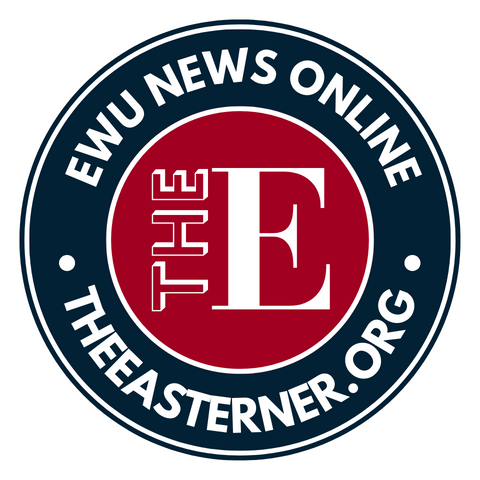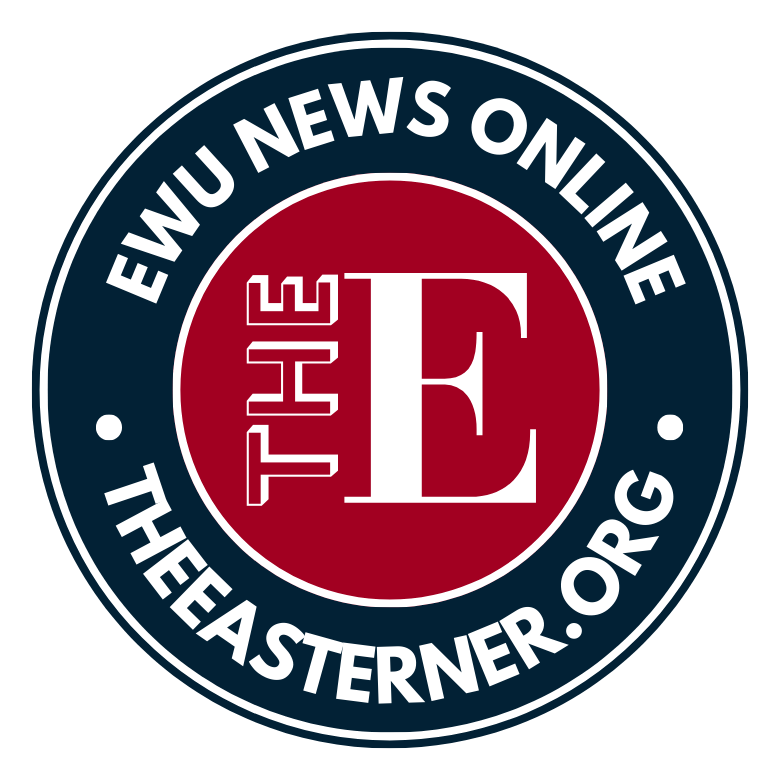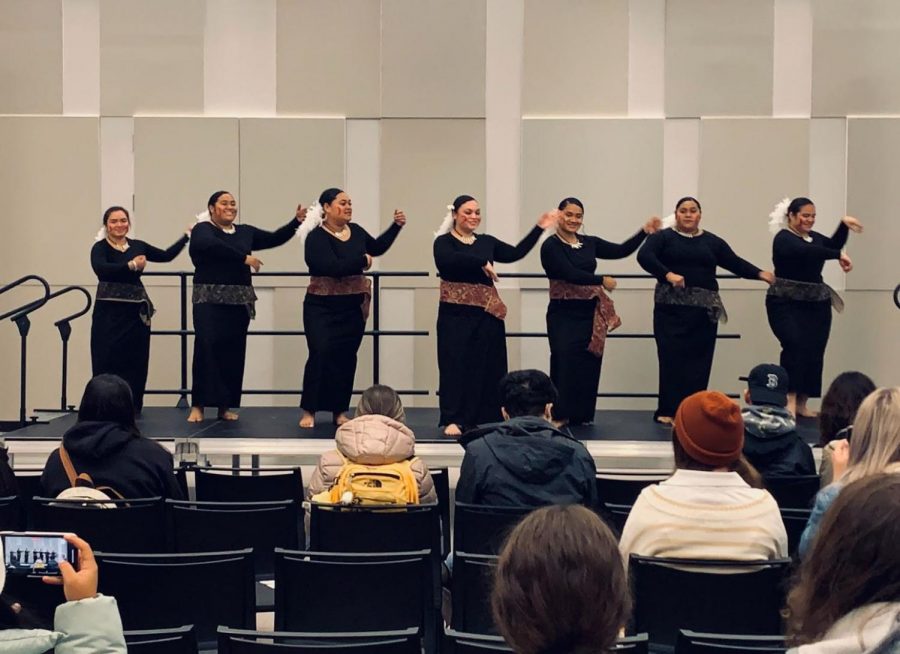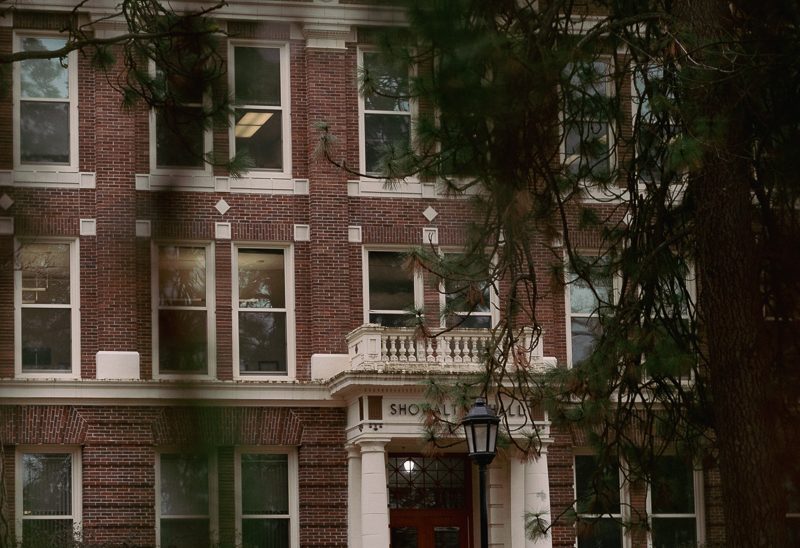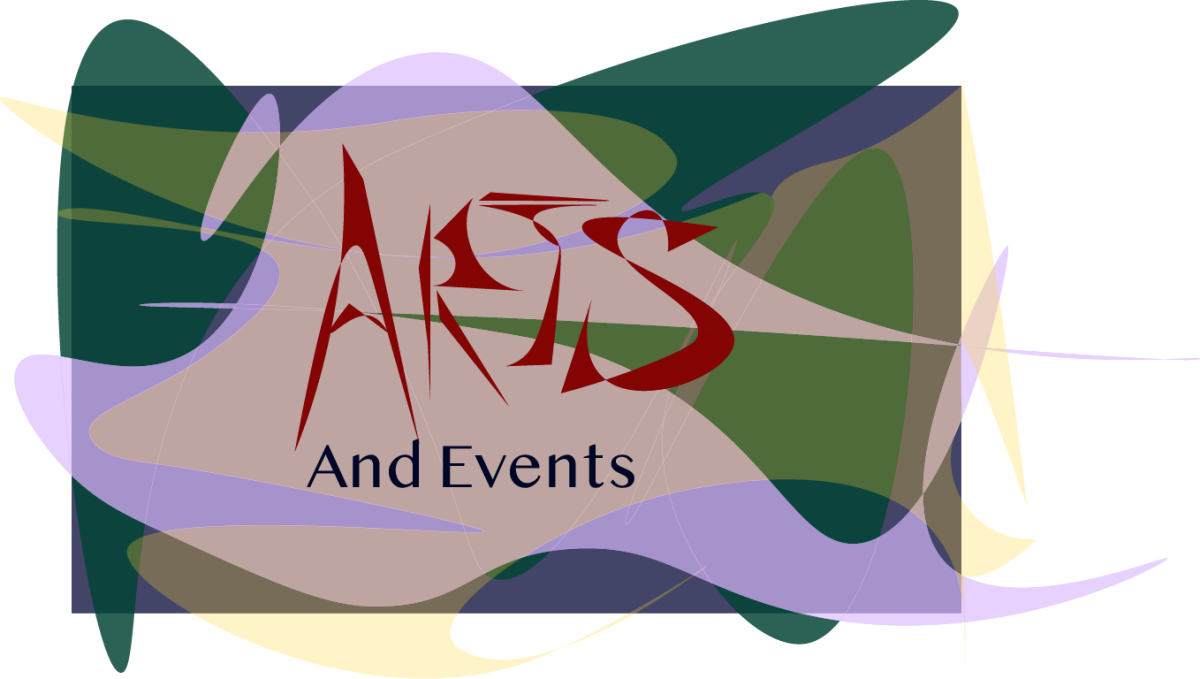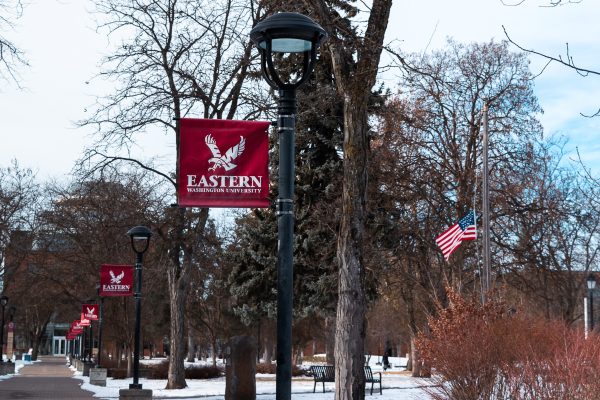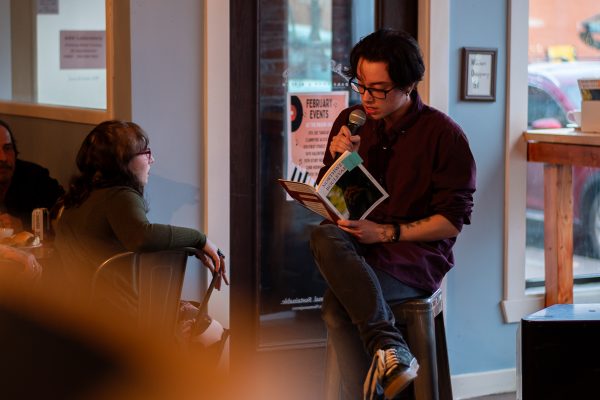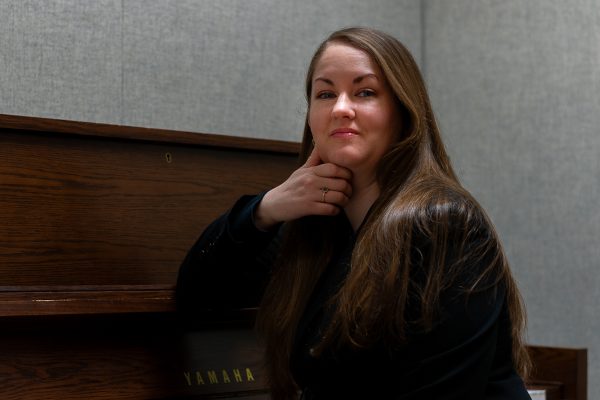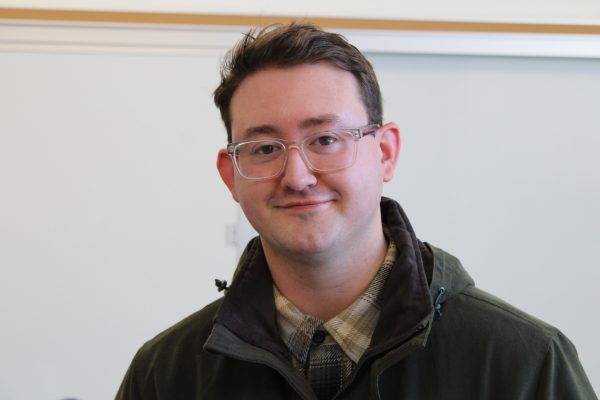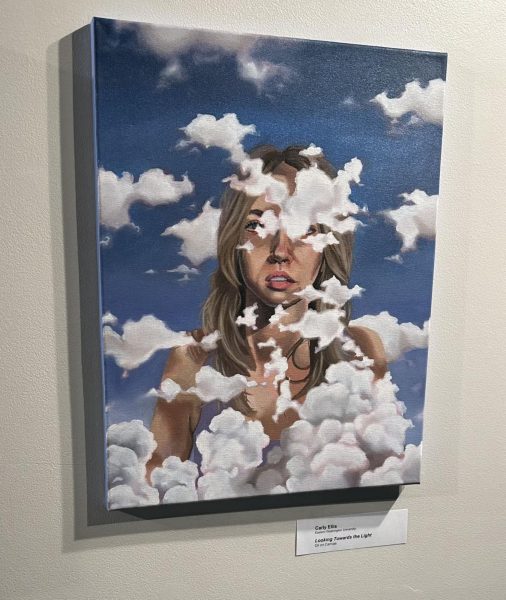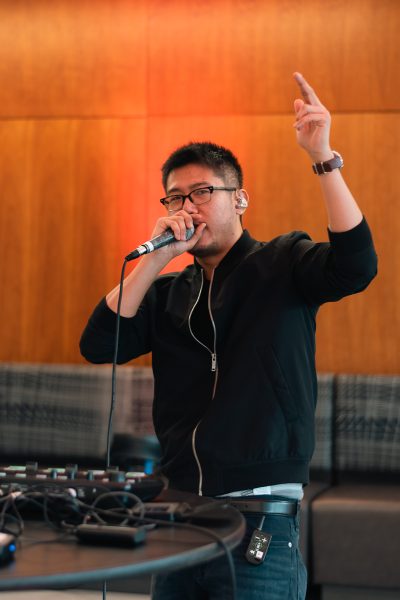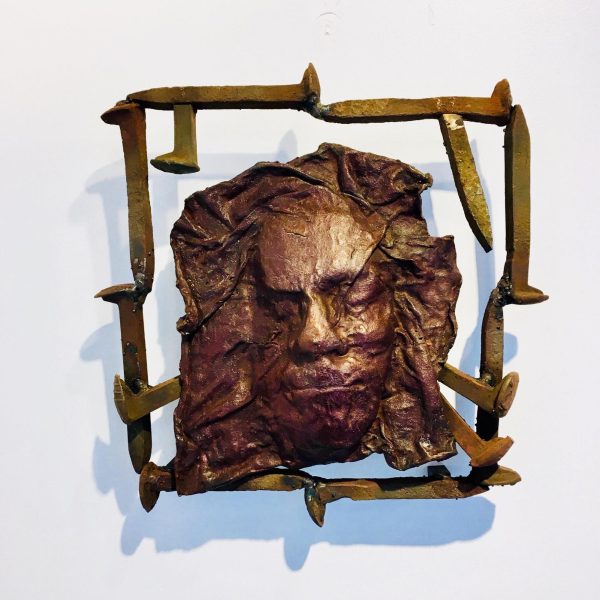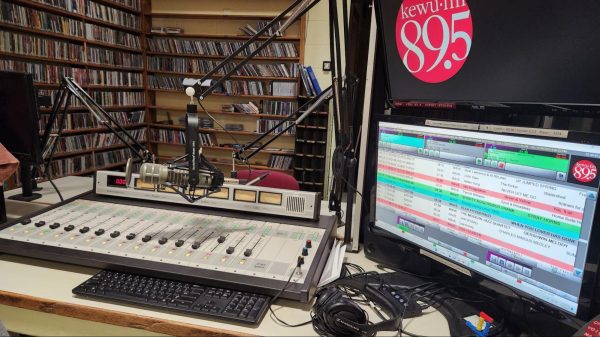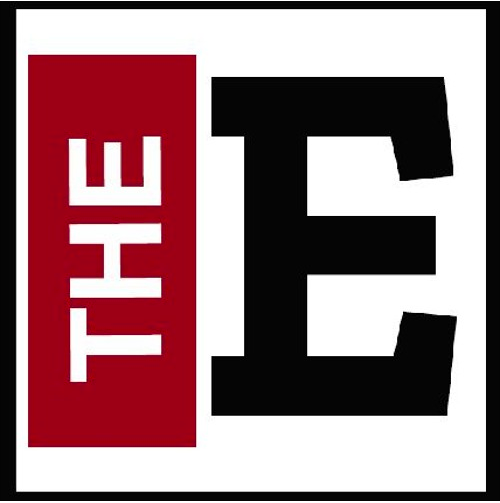- Arts & Features
- Arts and Features (New)
- Carousel
- Community
- Eagle Life
- EWU (New)
- Local (New)
- Student Life (New)
EWU celebrates culture on campus
October 20, 2021
On Wednesday, October 13th, 2021, I went to the Cultural Fair at the Eastern PUB (it was initially supposed to be in the mall but was relocated due to snow), where I soaked in various cultures. There were live performances. And all kinds of free food and drinks . All of which were delicious. I also interviewed multiple student clubs and organizations such as M.E.Ch.A., Ballet Folklorico de Atzlan, (remove, redundant) Native Hawaiian and Pacific Islander Club, Africana Studies, Chicana/Chicano Studies, the Native American Student Association, and the Pride Center. And I had the privilege of interviewing each and every single one (Unfortunately, I was not able to do the Native Hawaiian and Pacific Islander Club)
M.E.Ch.A, Ecequiel Maceda Garcia
Easterner: What can you tell us about the club?
Garcia: M.E.Ch.A a club that has been here a while at Eastern. We focus mainly on the Chicano culture, and what it means to be a Chicano. We have meeting every week and we really like to focus on political activism and current issues going on in the world. However we also want to have fun, bonding during our club meetings. M.E.Ch.A. brings us closer together, and I think it’s a really great club.
People like to think that we are very stuck-up and secluded from everybody. I have noticed that we sometimes run events that other people do. It may seem like “Oh, we’re trying to separate ourselves from a certain community”, but I don’t think that’s the case. With all clubs and organizations, we all kind of have to represent ourselves. So, I think rather than thinking we’re trying to ignore everybody and do our own thing, we are at the end of the day we are thinking about our club. And we just want people to know that we are endorsing our culture.
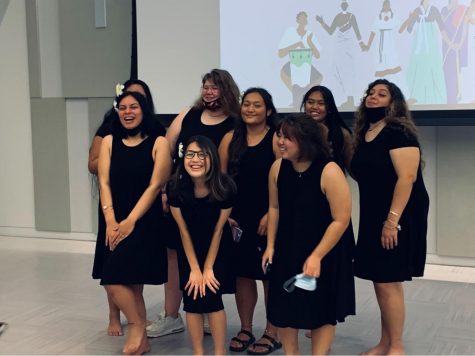
We do meet with other organizations like the Black Student Union, Native American Student Association, and the Native Hawaiian and Pacific Islander Club.
We used to be very involved in the Eastern community, but as time went on and then COVID hit we kind of took a slight dip in our numbers. But hopefully after this (festival), we can get back on track.
(This question should be asked/answered only once, generically, e.g., clubs can participate simply by signing up and staffing a table) Easterner: How were you able to participate in the fair?
Garcia: You just had to sign up. If you’re a part of a culture or identity you want people to relate to, you pull up to the event.
Easterner: Have you done this before?
Garcia: I have not, actually. This is my first time doing it. But I’m excited. You know, I’m here poise, like I know what I’m doing.
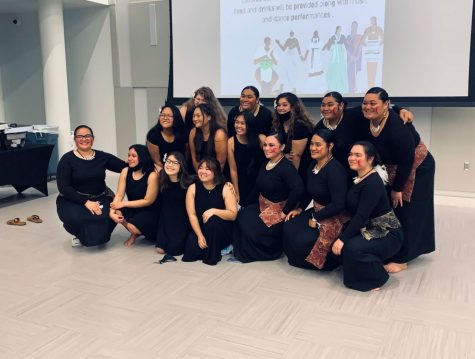
Ballet Folklorico de Atzlan, Sarah Gutierrez, Event Coordinator, Chicana/o/x Studies Program
Easterner: What can you tell me about your club?
Gutierrez: Yeah, we are Ballet Folklorico de Atzlan. We teach all-Mexican regional dancing.
Easterner: How were you able to participate in the fair?
Gutierrez: We can table and spread awareness of this club so other people who are interested in just dancing or learning about Mexican culture can come to talk to us about it and sign up to do practices.
Easterner: Have you done this before?
Gutierrez: Yes, I have tabled in the past. We did it for Neighborfest; we’ve done other tabling events on campus as well as off-campus. And we also do some practices in Spokane.
Easterner: What do you hope people take away from your club?
Gutierrez: I hope people understand the importance of being able to share the culture and being able to embrace the roots of those who become our Mexican descendants. And being able to come and practice and dance just have a nice time being stress-free and things like that.
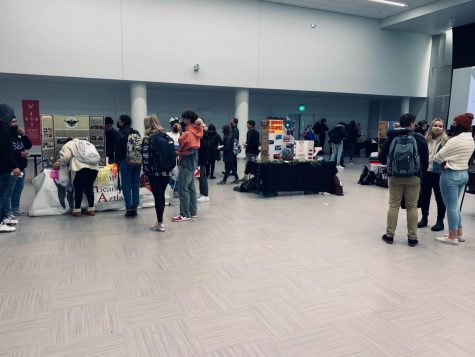
Rosie Rodriguez-Erechar, Program Coordinator/Recruiter, Africana Studies Program
Easterner: What can you tell me about your program?
Rodriguez-Erechar: Well, we offer an array of courses based on African, African-American history. We offer a major and a minor. Many students complete our minor without realizing it because a lot of our courses double-dip in BACARS, is what I think they’re calling it now? And we also have a student lounge which is popular with students. We do provide food for that. They can go there to just chill, relax, do homework, and it’s like a hangout/safe space for some students. We welcome any students. It doesn’t even have to be a part of our major/minor just to stop by, say hi, chill out, grab some food. Even if you forget your wallet or something, grab a pizza pocket from the freezer; it’s totally free.
We also have a food pantry for struggling students, and they’re welcome to grab absolutely whatever they like/whatever they need.
We also advise students to help them obtain their classes for their major and plan out their coursework for the remainder of their time at Eastern.
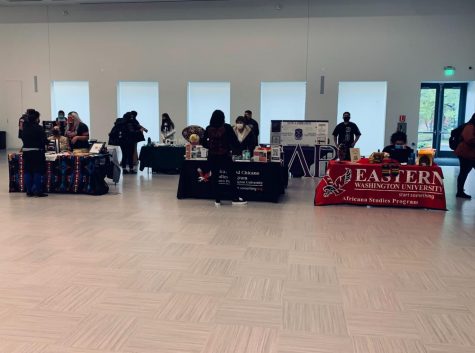
Easterner: How were you able to participate in the fair?
Rodriguez-Erechar: Well, we’re trying to our classes out there more. I think taking any of our classes would be beneficial to anyone just to learn about the history of any of the courses, especially in today’s times. I feel like our classes are essential; just learn about it. Take any diverse course that you can, especially the opposite of you; Learn about a new culture and learn about the history of something you’re not from. Take an African-American class, take a Chicano/Chicana Studies class, take an American Indian Studies course. It’s beneficial just to like, for your knowledge for your growth as a human. Learning about a different culture gives you a new perspective and new respect for a different culture.
Easterner: What do you hope people take away from this course?
Rodriguez-Erechar: Just the knowledge of any class that they take. I think that’s one of the biggest things we aim for is to break those misconceptions. And that’s the case for any of the courses that you take in today’s time. There’s a lot of heated discussion about what’s going on with African-Americans with Latinos. So if you take anything away from these courses, just learn about the history to better understand where people of these cultures are coming from. It would be amazing, beneficial. We’re just trying to break those barriers, break those stereotypes. We’re here to have discussions, and we want you to learn; we want you to ask questions. We’re here to help educate. We’re here to help you in any way that we can.
Makiah Domebo, NASA
Easterner: What can you tell us about the club?
Domebo: We’re the Native American Student Association here on campus. Unfortunately, we do not have any meetings at this time, but that is something we hope to discuss. We plan to meet up with more students that have come in, we’re going to have a conversation with the officers and figure out where we want to go moving forward. We hope to have a meeting in person or online on Zoom. But we are hoping to start planning for our spring powwow.

We’re hoping to bring awareness and for people to recognize that we’re not something you learn about in a history book (or not learn). We’re here to bring Native culture and Native people together and keep everyone involved in that culture part. Especially being away from people and going to college. It’s definitely a different experience from the reservations. That’s what we’re here for.
Easterner: How were you able to participate in the fair?
Domebo: Well, I’ve been in contact with the Multicultural Center and stuff, so usually all the different diverse try to keep in contact with each other so we can try to plan events together?
Easterner: Have you done this before?
Domebo: Yes, I have done a few different events. Just last week and Neighborfest, we try to come to the Multicultural Festival every year.
What do you hope people take away from this?
Domebo: I hope people walk away with a sense of community. Everyone here at NASA is like family. We get to know each other very well, and we come together with all our different cultures from different tribes. I’m hoping they can have a sense of family when looking back at NASA.
Maggie Harty, Pride Center
Easterner: What can you tell us about the organization?
Harty: Yeah, so we’re the Pride Center. We’re an LGBTQ+ resource center on campus. We’re here to serve students, faculty, and staff. Train them, and get them better equipped to support our queer students. And also provide resources to those students so that they feel like they have a place here on our campus. There are a lot of misconceptions about the queer community that we try our best to dispel, and part of that is talking about how being queer isn’t a choice. People are born queer, and that’s part of their identity as much as many other identities are. And helping people understand that we’re not that different from straight-cis people and we want the same things in life. We want to be happy and to find community just like everyone else.
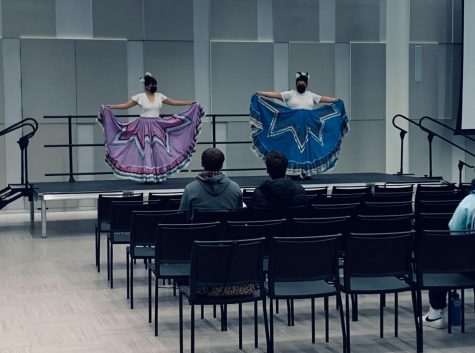
Easterner: How were you able to participate in the fair?
Harty: The Pride Center and the Multicultural Center are part of the same unit now, so as the Multicultural Center was putting this event together, they asked for our help in terms of tabling and also helping staff the event. So that’s how we got involved; we work very closely with the Multicultural Center and with Vanessa.
Easterner: Have you done this before?
Harty: Yes, I have! I’ve done a lot of tabling, so I’m the LGBT+ coordinator for the Pride Center, and we do tabling at a lot of events like Neighborfest, Admitted Students Day, things like that. So I table pretty often. I was tabling earlier this week too.
Easterner: As you know, National Coming Out Day is the same day as Indigenous Peoples’ Day. Do you feel that this infringes on people’s awareness of Indigenous People’s Day?
Harty: Um…I think that’s a tricky question to answer, and I believe that we need to be aware that they are on the same day at the end of the day. And that Indigenous Peoples’ Day is significant. How can we as the queer community still bring awareness to our own thing while keeping that in mind and making Indigenous people feel welcome in our community and feel seen and heard? I think that it’s essential to talk about the history of queer identity within Indigenous communities and how that intersects, and how we can support our siblings and friends who are Indigenous and also queer. So I think it’s a lot about being mindful and making sure we’re not overshadowing each other in any way. As well as bringing awareness to other marginalized communities, their struggles, and their activism to better support all queer people, including Indigenous People.
Easterner: What are you hoping people take away from your organization?
Harty: I think what I want people to take away from the Pride Center, for our queer community members, is that there is a safe place on campus for you. That there will always be a place where you can find community and build relationships. And for people outside of the community, I hope they walk away with the skills to support the people they love and the people they care about in a new and better way. And I think that we are constantly striving for education, so I hope that everyone who comes into the center and interacts with us walks that they learned something new.
